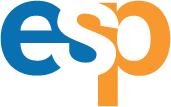Whether you’re a Web .Net, Java, or Mobile Developer, or even a Software Consultant, integrating these habits into your daily life will help you rise to the top of your field.
Let’s face it – you know that “Software Developer” is a general term. Even within the tech stratosphere there’s a fine line between Computer Scientists, Programmers, Developers, and Architects, not to mention the plethora of technologies under the “Development” umbrella. And just as there are myriad “types” of Software Developers, there’s no one right way among IT pros to be the best. However, what we do know is that the people who are “the best,” all possess important commonalities – they employ simple, everyday habits that develop (pun intended) them as professionals and give them an edge over their competition. We’ve pulled out six that stand above the rest, and while this isn’t an all-encompassing list, your development career is sure to benefit from incorporating these practices into your normal routine.
1. Don’t Be Satisfied With Slow Compiling – Find Innovative Ways To Speed Up The Process
There’s no question that as a developer, some portion of your day will be spent waiting for your code to compile. You may even see this as a perk to your choice of career. But how much time is too much? One 2013 survey found that developers spent almost 20% of their time waiting – a proportion of time nearly equal to that spent brainstorming and collaborating with team members. This lost time is detrimental to your productivity, and can be frustrating to an employer or client. Software consultants need to be especially sensitive to this, recognizing that they are among the most expensive and highly-coveted IT pros to work with, and their professional reputation and client’s repeat business depend on speedy work. Among other solutions, try working in different languages, adjusting scripts and automation, refactoring your projects into smaller components so you don’t have to compile as often, optimizing your hard drive, and changing your versioning system. Ultimately, your employer is paying for your expertise, and that includes finding ways to speed up the compilation cycle. So start experimenting: it’s a worthwhile time investment that will pay off in the long run during your work on a project.
2. When You Are Waiting For Code To Compile, Avoid The Temptation To Multitask
Regardless of the innovative, time-saving compilation cycle solutions you come up with, as a developer you will still experience lulls of wait time throughout your day. These lulls may seem like a great opportunity to work on different projects, coding or otherwise, in order to maximize your time expenditure and productivity. Not so for software developers. Because coding requires you to keep so many things in your head at once, context switches can actually double the amount of time you spend on each project, requiring you to refresh all of the variables, names, numbers, etc. when you return to each one. Instead, take some time to give your brain a rest. Taking a break can actually increase your productivity and creativity. So zone out, complete a mindless activity such as desk organization, do a couple of quick desk-stretches to get your blood flowing, or grab some more coffee. As long as you’ve done your part to ensure the computer is working at its fastest (see habit #1), such lulls are not time wasted – they’re a part of your job, and they’re helping you to refocus and refresh regularly. Take advantage of this time and enjoy.
3. Take Responsibility For Your Knowledge: Read Up On Tech, And Master Software Politics
Read so much about code that you think in code. Whether or not you’re a self-taught IT pro, your job requires constant learning and re-learning of technologies and the ins-and-outs of software development. There’s always something more to know about tech that you didn’t already know, and keeping up with all of the tips and tricks would be impossible if you didn’t put in the time to maintain your expertise. Stay up to date on the latest tech trends by subscribing to popular tech blogs, and participating in Q&A’s on sites like Quora. Simultaneously, put in some mental “heavy lifting” by reading through the best tech books and textbooks to brush up on your coding, language and algorithm basics. Just don’t forget to maintain a penchant for knowing what new technology principles are fleeting fads (i.e. some of the “Big Data” technologies), and what core information is worth investing in and mastering. Finally, take the advice of Michael O. Church and know your CS666 (“Politics of Software Development”), which are ultimately foundational and essential to your career advancement. True experts acknowledge that they don’t know everything, and never stop endeavoring to learn more.
4. Develop Apps Of Your Own At Home
We get it – it’s a cliché to assume that every software developer wants to spend all of his or her non-working hours essentially working. But if you’re not at least occasionally spending some of your free time trying to develop the next Angry Birds or Facebook, you’re behind the curve. Working on such projects can test and grow your abilities, and teach you new skills that may come in handy while working a future gig. Not only that, but owning your own project helps you to establish and market yourself to clients, which can lead to such future opportunities. Truly, having this ready-to-use code in your back pocket is what clients are looking for, because it saves them the cost of development time. If you really can’t get into the bigger app-development scene, you can still experiment with programming casually and test your knowledge by joining in various online communities and working with esoteric programming languages. Ultimately, aside from on-the-job learning opportunities, being in the habit of taking on development projects during your free time will benefit you the most professionally, and as long as you love what you do, this habit is a win-win.
5. Always Strive To Learn New Web And Mobile Technologies
Whether or not you are a web or mobile developer, you should strive to know all of the technologies in both areas. Not only will these skills help you stand out to IT hiring managers, but they can also help to broaden your horizons for future opportunities. And in the ever-changing world of tech, you’ll want to be prepared for anything the market throws at you. PHP, ASP.NET, HTML/CSS, jQuery, JS, Android SDK, iOS, and Windows phone are just some among the many technologies you need to know. An equally important caveat to this habit: recognize that knowing and explaining aren’t always the same thing. Know how to explain these and other (both old and new) technologies to clients. From various browsers, to frameworks, to data formats, and so much more, your expertise encompasses the ability to help those who are less technically-savvy understand what they’re paying for and why; and you can’t accomplish this feat without having a complete grasp of all of these technologies for yourself.
6. Step Away From The Computer Frequently Throughout Your Day
Not only do IT workers fall among those professionals most likely to be glued to their computer and desk all day, but they tend to remain seated and plugged-in during spare time as well. Such habits pose significant physical and mental health risks, making it extremely important for IT pros to practice wellness throughout their work day. Try to get up from your desk at least once an hour (maybe while your code is compiling! See habit #2), or better yet invest in a standing desk. Choosing to incorporate these wellness practices into your workday instead of only completing a workout routine before or after work can increase both your personal happiness and professional productivity. Additionally, seek to incorporate some non-computer-related hobbies into your free time. From learning a new language, to reading a non-coding book, to rock climbing, your mental facilities will be at their best when you stretch your brain to think in ways it doesn’t normally during the workday.
Perhaps you’re already in the habit of designing fun apps in your spare time, or reading up on the latest industry best practices. If so, great – you’re already one step ahead of the competition. However, by challenging yourself to grow personally and professionally in all six of these areas you’re sure to experience the success that only those at the top of their field get to enjoy. Your daily habits shape who you are as a professional, and leave a lasting impression on clients and employers. Focusing on these simple behaviors could lead to big professional developments.



